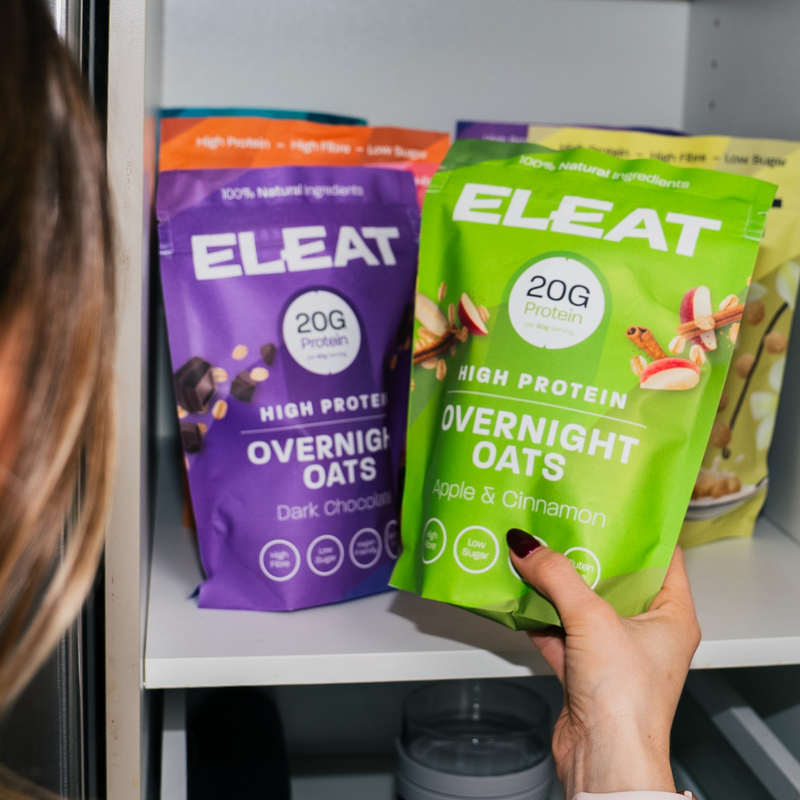In this article:
Winter is here, and with it comes the increased risk of catching a cold or battling a nasty upper respiratory infection (URI). The combination of colder temperatures, more time spent indoors, and exposure to seasonal viruses can make this a challenging time for staying healthy.
However, you can reduce your risk of falling ill by adopting a proactive approach to boosting your immunity, fine-tuning your lifestyle habits, and ensuring optimal nutrition. Here are practical tips from performance nutritionist, Tom McClure, to help you stay ahead of the sniffles, maintain your energy levels, and enjoy a healthier winter season.
Boost Your Immunity
Your immune system is your first line of defence against seasonal illnesses. Here are evidence-based ways to fortify it:
Focus on Nutrition
Macronutrients: Ensure your diet includes enough proteins, fats, and carbohydrates to support immune cell function and protein synthesis.
Micronutrients: Vitamins and minerals like zinc, vitamin C, and vitamin D play a vital role in your body’s antioxidant defence. Eat a nutrient-rich, balanced diet with plenty of fruits, vegetables, whole grains, and lean proteins.
Avoid Low-Calorie Diets: Consistently eating fewer calories than your body needs can increase the risk of upper respiratory infections by 2-8 times, particularly in female athletes.
Consider Supplements
Zinc Lozenges: Taking 75mg of zinc lozenges at the onset of a cold can reduce viral activity and shorten symptoms by about three days.
Vitamin C: A daily intake of 250-1000mg can reduce oxidative stress and may lower your risk of URIs.
Vitamin D: In winter, 1,000 IU daily helps enhance immunity and reduces the risk of respiratory infections.
Probiotics and Prebiotics: These support gut health by strengthening the gut barrier, reducing gut permeability, and providing anti-inflammatory benefits.
Smart Training and Lifestyle Choices
Your daily habits and training routines significantly impact your immune system. Here’s how to stay healthy:
Manage Your Training Load
After recovering from a cold or flu, it is essential to give your body adequate time to heal before resuming heavy training. Jumping back into intense exercise too quickly can strain your system, potentially leading to complications or a prolonged recovery. Start with light physical activity and gradually reintroduce intensity, carefully monitoring how your body responds. Pay attention to any lingering symptoms, such as fatigue or shortness of breath, as these can indicate the need for further rest.
To avoid overtraining and immune suppression—often referred to as the "open window" effect—increase your training load incrementally. A gradual weekly increase of about 10% is a safe way to rebuild endurance and strength without compromising your immune system. This approach ensures that your body remains resilient and ready to fend off seasonal illnesses as you regain your fitness
Prioritise Stress and Sleep
“Psychological strain weakens your immunity, prioritise mental health and recovery” - Tom McClure, Performance Nutritionist at Omnia Performance
Chronic psychological strain can take a toll on your immune system, making it harder for your body to fend off seasonal illnesses. Managing stress is therefore a key component of staying healthy during the winter months. Incorporating stress management techniques into your daily routine can help mitigate its negative effects. Practices such as mindfulness meditation, yoga, or even simple deep breathing exercises can significantly reduce stress levels, promoting both mental and physical well-being.
Sleep plays a vital role in maintaining a strong immune system. Aim to get 7-9 hours of quality, restful sleep each night, as insufficient sleep is directly linked to an increased risk of catching colds and other infections. Establishing a consistent sleep schedule, creating a calming bedtime routine, and ensuring a comfortable sleep environment can all contribute to better rest and enhanced immunity.
Hygiene Habits Matter
Good hygiene practices can make a significant difference in avoiding winter illnesses.
Hand Hygiene: Wash your hands regularly with soap and water, especially after being in public spaces. Avoid touching your face to prevent self-inoculation.
Avoid Sharing: During cold and flu season, avoid sharing items such as utensils, water bottles, or towels.
Disinfect Frequently Used Surfaces: Regularly clean doorknobs, phones, and keyboards to reduce the spread of germs.
The Takeaway
Avoiding winter colds isn’t just about steering clear of sick people; it’s a holistic effort to strengthen your body’s natural defences and cultivate habits that support overall health. Building a robust immune system starts with prioritising balanced nutrition—a diet rich in fruits, vegetables, whole grains, and lean proteins ensures your body gets the essential nutrients it needs. Incorporate supplements like zinc and vitamin D to fill potential gaps and bolster your immunity during the colder months.
Equally important is managing your training load and stress levels. Overtraining can suppress your immune system, so opt for a gradual increase in intensity and listen to your body’s signals. Stress, both physical and psychological, can weaken your ability to fight off infections, making mindfulness, relaxation techniques, and quality sleep essential components of your wellness strategy.
Finally, maintain excellent hygiene practices to reduce the risk of infection. Regular handwashing, disinfecting commonly touched surfaces, and avoiding the sharing of personal items can go a long way in keeping germs at bay. By combining these proactive steps, you’ll be better prepared to enjoy the winter season without the interruption of illness.















